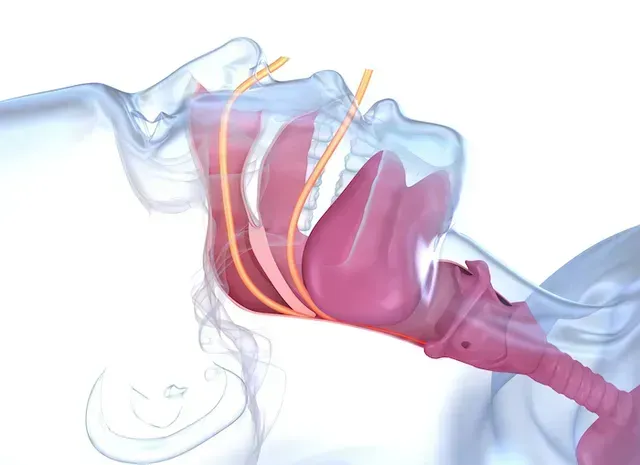Obstructed Airways
Snoring & Sleep Apnea Dentist located in Harrisburg, PA

Obstructed Airways services offered in Harrisburg, PA
Obstructed airways increase your risk of various respiratory issues, including snoring, sleep apnea, and chronic congestion. At Pennsylvania Dental Sleep Medicine and our Pittsburgh Dental Sleep Medicine offices, our snoring and sleep apnea dentists may be able to help with an obstructed airway and coordinate care with your physicians that can help you breathe easier!
Call our office today or use our online booking tool to request an appointment.
Obstructed Airways Q & A
What is an obstructed airway?
An obstructed airway refers to a blockage in any part of your respiratory system. The respiratory system is a complex network of tubes that connect your nose and mouth to your lungs.
Most airway obstructions are minor and respond to conservative treatment. Still, if an obstruction blocks your entire airway, it’s potentially life-threatening and might require surgery.
What are the types of airway obstructions?
There are several types of airway obstructions, including:
- Upper airway obstructions (a blockage in the area between your nose, lips, and larynx)
- Lower airway obstructions (a blockage between your larynx and lungs)
- Partial airway obstructions (a blockage in which some air can pass)
- Acute airway obstructions (blockages that occur because of infections or foreign objects)
- Chronic airway obstructions (blockages that develop slowly over time)
If you experience difficulty breathing at night and it prevents you from getting restful or rejuvenating sleep, don’t wait to seek treatment.
What are some common causes of obstructed airways?
Obstructed airways occur for various reasons, including:
- Anatomical structures
- Bacterial or viral infections
- Inhaling or swallowing foreign objects
- A larger tongue size or swelling of the tongue
- Allergic reactions
- Abscesses in the throat and nostrils
You might also experience an obstructed airway because of trauma, like a blow to your trachea.
How are obstructed airways treated?
Treatment of obstructed airways depends on various factors, including your age, medical history, and the severity of your symptoms. If your obstruction occurs because of sleep apnea, your provider might prescribe Oral Appliance Therapy with a Mandibular Advancement Device.
Can airway obstructions be prevented?
You can’t prevent airway obstructions entirely, but there are several things you can do to reduce your risk. Pennsylvania Dental Sleep Medicine recommends eating slowly, chewing your food thoroughly, quitting smoking, and possibly Myofunctional Therapy exercises.
To learn more about diagnosing obstructed airways, contact your medical provider. Pennsylvania Dental Sleep Medicine may facilitate the process and assist in connecting you with a local sleep medicine physician as well.


